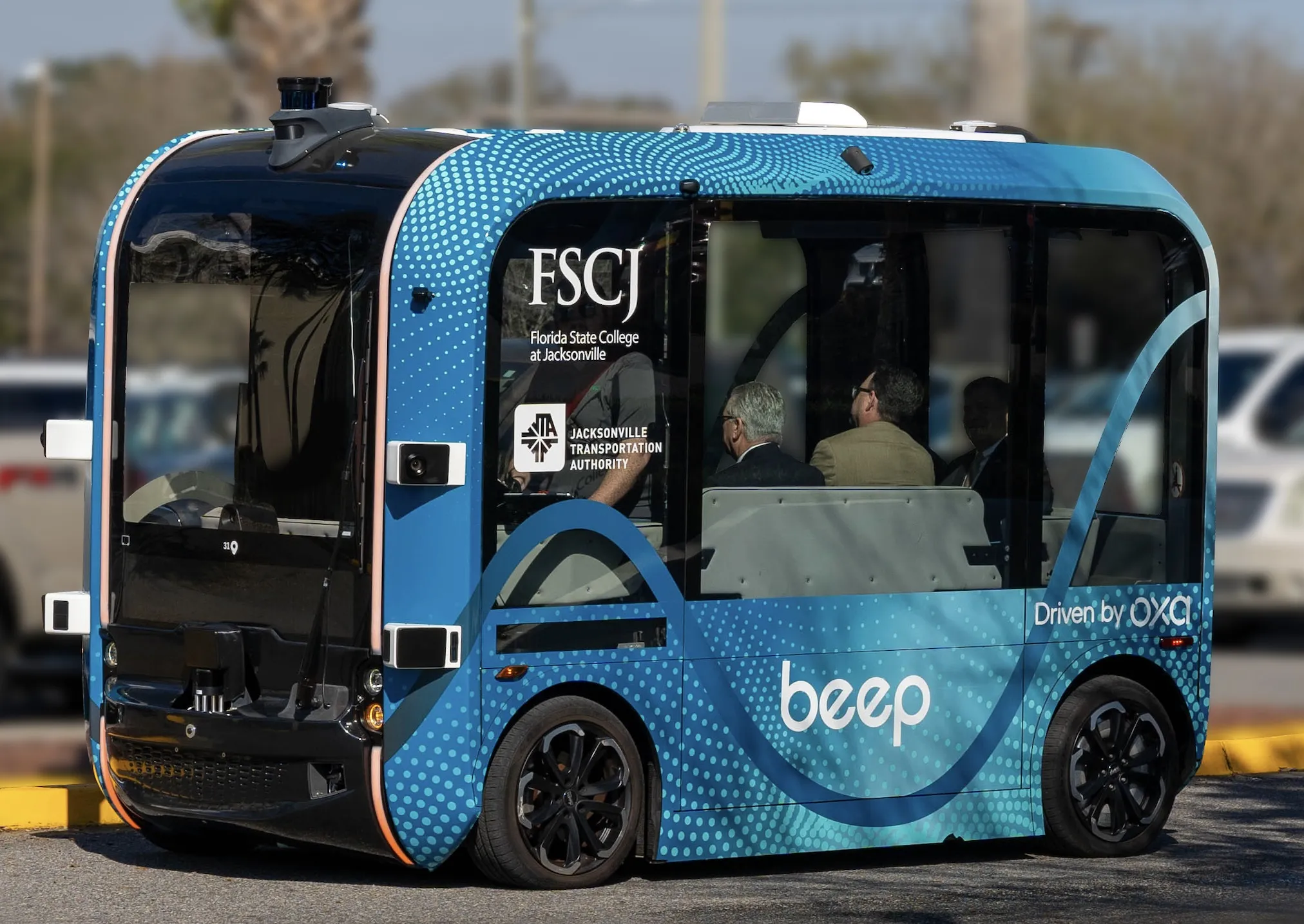Dutch technology company 2getthere, which specialises in the development of automated vehicles, is set to open a new office in Silicon Valley in January 2017.
From its new base in the US, the Utrecht-based company plans to expand its market for automated transit solutions, following its achievements in Singapore and Dubai and building on its experience in developing and operating automated, driverless vehicles.
The company, which currently employs around 50 developers, IT specialists and engineers, e
January 5, 2017
Read time: 2 mins
Dutch technology company 8172 2getthere, which specialises in the development of automated vehicles, is set to open a new office in Silicon Valley in January 2017.
From its new base in the US, the Utrecht-based company plans to expand its market for automated transit solutions, following its achievements in Singapore and Dubai and building on its experience in developing and operating automated, driverless vehicles.
The company, which currently employs around 50 developers, IT specialists and engineers, estimates it will be able to sell a minimum of three to five of these types of solutions in the US annually within the next several years, accounting for a total of US$150 million to $300 million in new orders.
Although 2getthere delivered its first automated transit system to Amsterdam Airport Schiphol as early as 1997, the company remains a relatively unknown player in the Dutch manufacturing industry.
Its core markets are located in Asia and the Middle East, where its driverless taxis and minibuses have been in operation for some time. The opening of the new San Francisco office is part of the company’s strategy to break into the high-potential US market.
The company states that its decision to set up a base in the heart of high-tech hub Silicon Valley was prompted not only by the fact that all leading developers of automated transit systems and the related technologies are based there, but also by the market potential to be found in the area.
The company is currently involved in more than a dozen scheduled projects across the US, including a project in Jacksonville, Florida and one in Greenville, South Carolina.
2getthere has already teamed up with the US-based company Oceaneering, working on various projects and believes that finding strong partners is a priority when it comes to reducing the time needed to develop the market for its products.
It also believes there is great commercial potential in the development of transit systems for large theme parks and medium-sized airports serving 1.5 million+ passengers a year.
From its new base in the US, the Utrecht-based company plans to expand its market for automated transit solutions, following its achievements in Singapore and Dubai and building on its experience in developing and operating automated, driverless vehicles.
The company, which currently employs around 50 developers, IT specialists and engineers, estimates it will be able to sell a minimum of three to five of these types of solutions in the US annually within the next several years, accounting for a total of US$150 million to $300 million in new orders.
Although 2getthere delivered its first automated transit system to Amsterdam Airport Schiphol as early as 1997, the company remains a relatively unknown player in the Dutch manufacturing industry.
Its core markets are located in Asia and the Middle East, where its driverless taxis and minibuses have been in operation for some time. The opening of the new San Francisco office is part of the company’s strategy to break into the high-potential US market.
The company states that its decision to set up a base in the heart of high-tech hub Silicon Valley was prompted not only by the fact that all leading developers of automated transit systems and the related technologies are based there, but also by the market potential to be found in the area.
The company is currently involved in more than a dozen scheduled projects across the US, including a project in Jacksonville, Florida and one in Greenville, South Carolina.
2getthere has already teamed up with the US-based company Oceaneering, working on various projects and believes that finding strong partners is a priority when it comes to reducing the time needed to develop the market for its products.
It also believes there is great commercial potential in the development of transit systems for large theme parks and medium-sized airports serving 1.5 million+ passengers a year.








